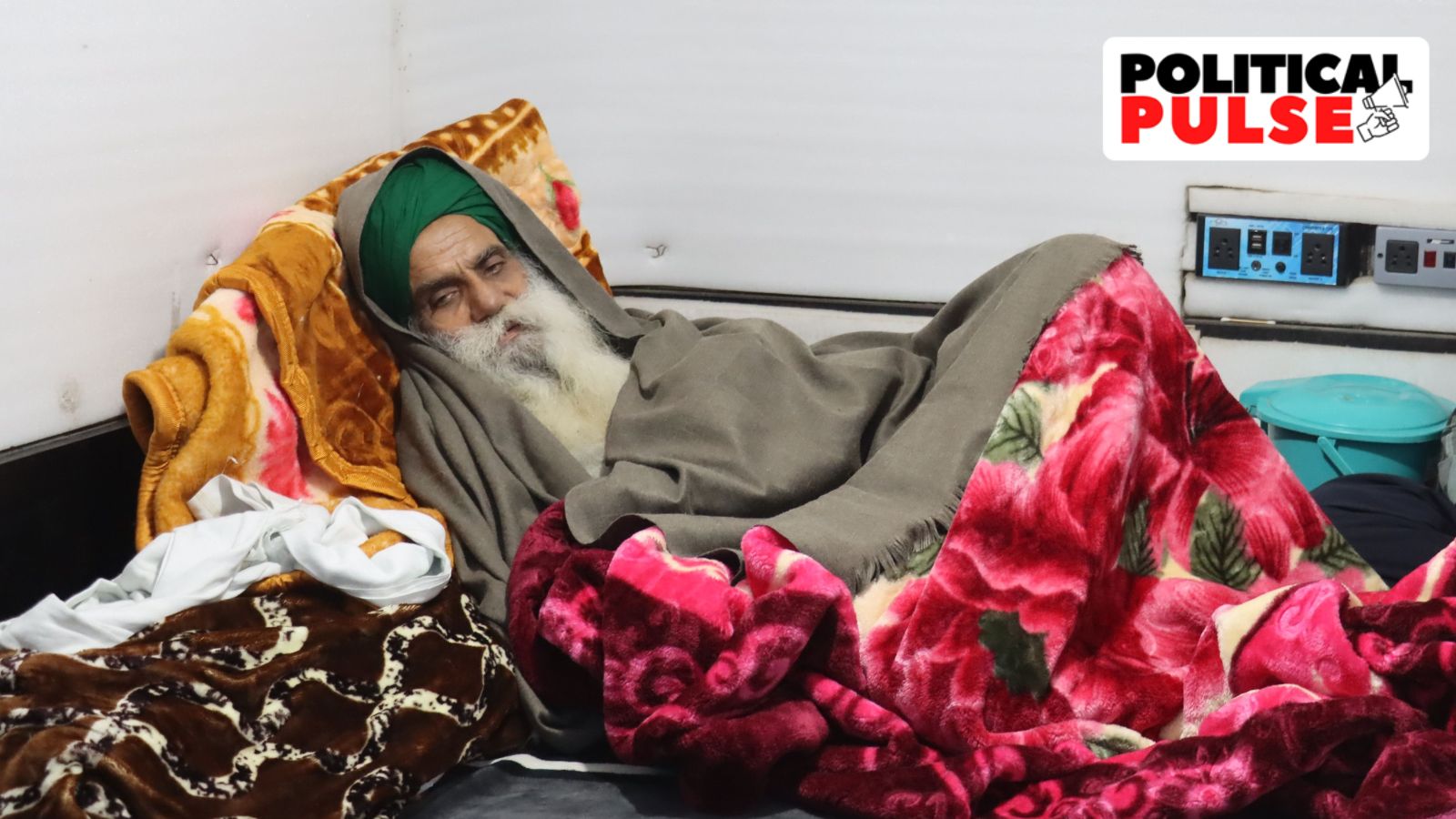 |
|
Jagjit Singh Dallewal, a 70-year-old cancer patient and farmer leader, is on a hunger strike for 40 days to demand the enactment of an MSP (Minimum Support Price) guarantee law. His protest, a 'do-or-die battle' in his own words, reflects the deep-seated frustration and desperation felt by many farmers in India. Dallewal's commitment underscores the gravity of the situation and the urgent need for the government to address the farmers' concerns. He has explicitly stated that he will not end his fast until the government fulfills its promise from December 2021 and enacts a law guaranteeing MSP, as recommended by the Parliamentary Standing Committee. This unwavering stance highlights the lack of trust and the perceived lack of action from the government.
The protest, which began on February 13, 2024, involves a sit-in at the Punjab-Haryana border, following the Haryana police's blockage of a farmers' march to Delhi. Dallewal's refusal of medical aid, despite his deteriorating health condition, emphasizes the seriousness of his commitment and the intensity of the farmers' demands. The prolonged nature of the strike and the unwavering determination of the leader and participating farmers suggest a deep-rooted dissatisfaction with existing policies and a profound lack of confidence in the government’s commitment to the welfare of farmers. The issue extends beyond mere economic concerns; it touches upon questions of justice, fair treatment, and the very survival of farming communities.
Dallewal refutes claims by BJP leaders that the MSP for wheat and paddy in Punjab has been raised, arguing that this increase doesn’t address the broader concerns of farmers, particularly those who grow crops other than wheat and paddy. He stresses the need for diversification to address challenges such as groundwater depletion, but highlights that this diversification is impossible without a guaranteed MSP for alternative crops. The decline of the cotton belt in Punjab due to pest attacks and limited MSP purchases by the Cotton Corporation of India further exemplifies the precarious situation faced by farmers. Dallewal asserts that Punjab's struggle will benefit farmers nationwide, emphasizing the interconnectedness of agricultural challenges across the country and the need for a unified approach to address them. The issue transcends regional boundaries, making it a matter of national importance.
Dallewal's personal journey into farmers' activism provides valuable insight into the issue. Initially uninterested in farmers' unions, his involvement stemmed from assisting his brother, who was the treasurer of a village-level unit of the Bhartiya Kisan Union (BKU). His skills in accounting led to his gradual rise within the union, exposing him to the harsh realities faced by farmers. The account of his journey reflects a path taken by many who gradually become aware of the struggles and injustices within the agricultural sector, ultimately dedicating themselves to advocacy and collective action. His rise within the BKU, the eventual split into various unions, and his role in the formation of the Samyukta Kisan Morcha (non-political) showcase the complex dynamics and evolution within the farmers' movement.
The formation of the SKM (non-political) in July 2022, following the repeal of the three farm laws, marks a significant turning point. While some unions ventured into politics, Dallewal and others chose to remain focused solely on farmers' rights, creating a separate non-political organization. This separation underscores the divergent views within the movement, highlighting the tension between political action and purely advocacy-based activism. The mahapanchayat held on Saturday serves as a platform to garner support and unity among farmers across the country, emphasizing the need for a nationwide movement to achieve their goals. Dallewal's decades-long involvement in farmer unions, having visited numerous states, allows him to bring a significant level of experience and insights to the mahapanchayat. His planned brief address, only two to three minutes, suggests a focus on disseminating a core message of unity and urgent action.
Dallewal's concluding message is a potent call to action, directly addressing the concerns raised during the 2020-21 protests about the premature suspension of the movement. He acknowledges past compromises due to internal pressures and directly relates his current hunger strike to the need for a lasting solution regarding MSP guarantees. His actions resonate with farmers who felt that the previous protests did not adequately address their demands and underscores the urgency of the current situation. The statement that this is a 'do-or-die battle' (‘aar paar ki ladai’), along with the preparation of his will, reveals a deep commitment to the cause and a willingness to sacrifice everything for it. He underscores the responsibility of farmers across India to participate actively in the movement, highlighting the importance of national unity in overcoming this critical challenge facing the country's agricultural sector. The closing appeal serves as a rallying cry for farmers to join the struggle, emphasizing the significance of collective action to secure a better future for farmers in India.
